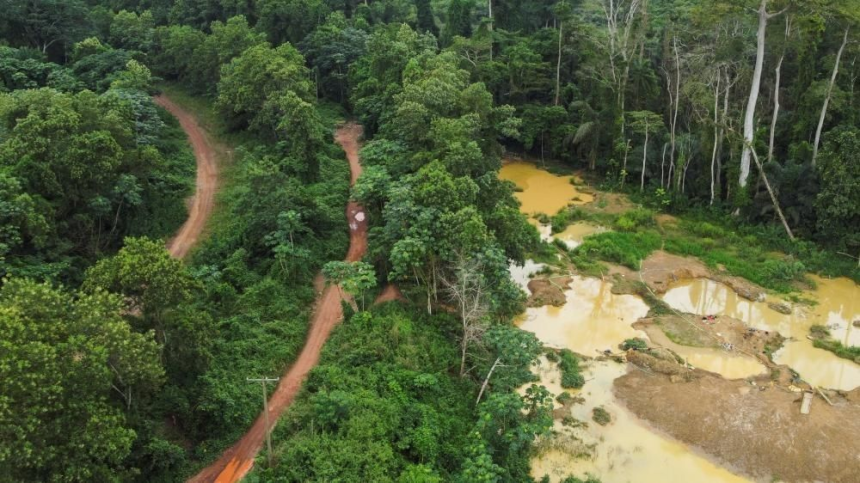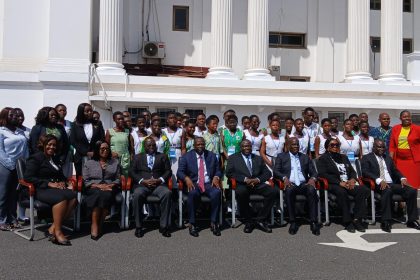The Paediatric Society of Ghana has raised alarm over the devastating impact of illegal mining, popularly known as galamsey, on the lives and health of children across mining communities in the country.
It called on the government to take all necessary measures to halt the activities of galamsey, due to its dire consequences on children’s health.
Dr Hilda Mantebea Boye, President of the Paediatric Society of Ghana, told the Ghana News Agency in an interview that the urgent call to action in addressing the galamsey menace had become necessary due to the devastating impact on children’s health and the environment.
“The menace is not only destroying water bodies and the environment but also claiming young lives, causing school dropouts, and exposing children to life-threatening diseases,” she said.
Dr Boye explained that several reports had emerged about children drowning in abandoned mining pits filled with water, which are often mistaken for dry ground due to weeds covering their surfaces.
“Some of these pits are left open after the miners leave, and the children sometimes play around them. Before you know it, a child has fallen in and drowned,” she said.
The Paediatrician at the Korle-Bu Teaching Hospital also expressed concern about the growing number of children dropping out of school to join illegal mining operations, lured by the promise of quick money to support themselves and their families. “This not only threatens their education but also their health and future,” she noted.
She noted that residents in galamsey affected areas now struggle to access clean water, increasing diarrheal diseases and other waterborne infections, adding that health professionals were seeing more cases of diarrhoea due to the contaminated water people are forced to drink.
The Paediatric Society President added that pollution from mining chemicals such as mercury,
arsenic, and lead could cause severe long-term health effects, including neurological disorders, autism, skin diseases, cancers, and kidney or liver failure.
Dr. Boye referred to reports from the Korle-Bu Teaching Hospital, which recorded over 2,000 cases of kidney disease within the first half of 2025, a figure she described as worrying.
Although she cautioned that not all cases could be directly linked to galamsey, she indicated that the environmental pollution was a likely contributing factor and cited a recent study which found that 500 placentas of women who had miscarried contained high levels of mercury, particularly in areas around Sefwi and along the Pra and Ankobra Rivers, which are heavily polluted by illegal mining.
Dr. Boye stressed that Ghana could not wait for decades of scientific evidence before taking action.
“We already know that polluted water, soil, and food are harming us. It’s time to act, not to wait for more data before doing the right thing. If we destroy the land, it will destroy us. The earth that feeds us will kill us if we continue this way,” she emphasized.
She warned that the impact of galamsey extended beyond mining communities, as contaminated food and water were transported and consumed across the country, putting every Ghanaian at risk.
Dr. Boye called on the government to take decisive and sustained measures to stop illegal mining, while providing alternative livelihoods for people engaged in the activity.
She urged Ghanaians to unite in ending galamsey, saying: “All we need is to stand together and deal with this existential threat before it’s too late.”
GNA






